
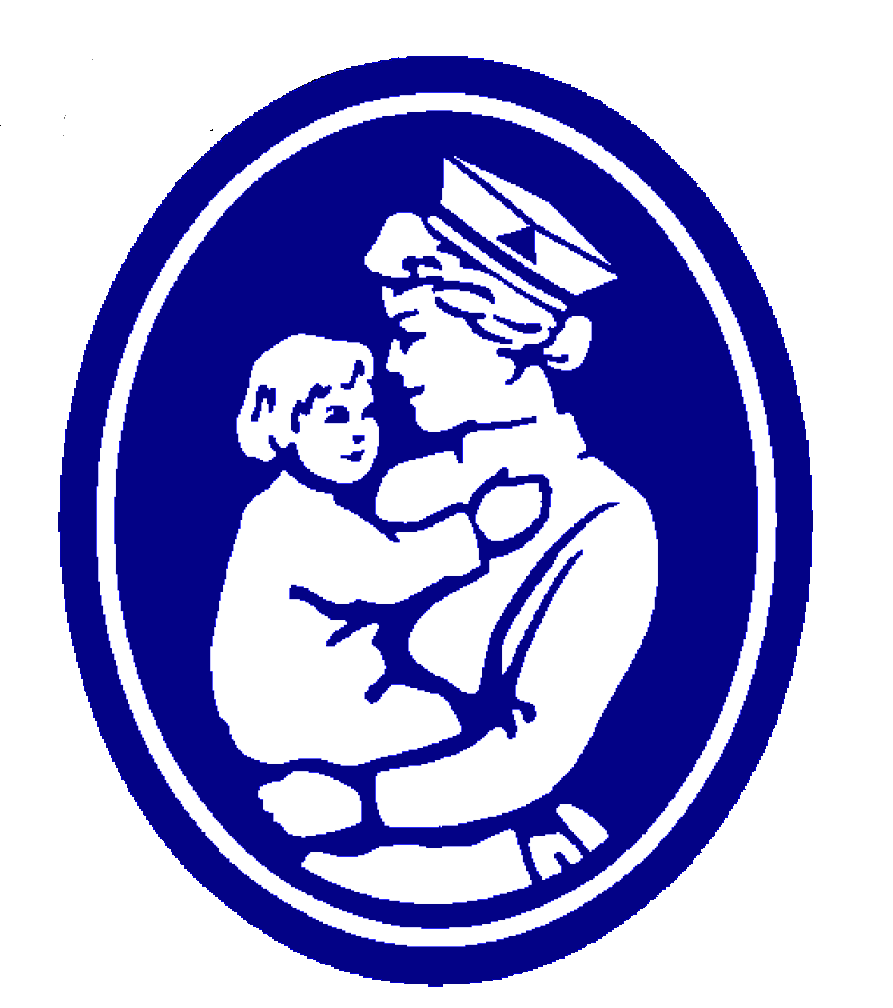
Fetal/Neonatal Brain Development and Injury Group
|
Children's Hospital Boston
Carmen Fons
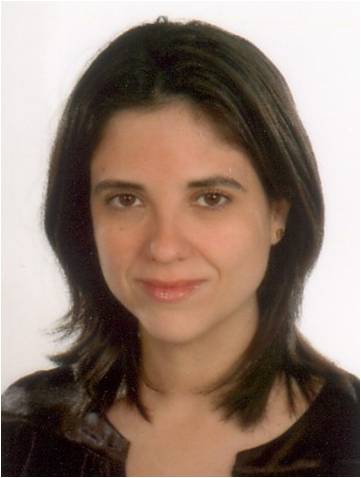 Carmen Fons received her MD degree from Rovira and Virgili University School of Medicine, Tarragona, Spain. She completed her residency in Pediatrics at Lozano-Blesa Hospital, Zaragoza University. In September 2003 she obtained the proficiency as an investigator from Zaragoza University. After short clinical training in Pediatric Neurology at St. Christopher’s Hospital, Philadelphia, she developed great interest in neurosciences. She continued her training and completed a fellowship in Pediatric Neurology at Sant Joan de Deu Hospital for Children, Barcelona University where she has been on the faculty since 2007. She got her PhD in neuroscience from Barcelona University in February 2010. She has participated in several research projects funded by the Spanish National Institute of Health. Currently, she is working with Fetal/Neonatal Neurology Research Group, and her research is focused on the cerebral and systemic hemodynamic changes related to subclinical seizures in preterm infants.
Carmen Fons received her MD degree from Rovira and Virgili University School of Medicine, Tarragona, Spain. She completed her residency in Pediatrics at Lozano-Blesa Hospital, Zaragoza University. In September 2003 she obtained the proficiency as an investigator from Zaragoza University. After short clinical training in Pediatric Neurology at St. Christopher’s Hospital, Philadelphia, she developed great interest in neurosciences. She continued her training and completed a fellowship in Pediatric Neurology at Sant Joan de Deu Hospital for Children, Barcelona University where she has been on the faculty since 2007. She got her PhD in neuroscience from Barcelona University in February 2010. She has participated in several research projects funded by the Spanish National Institute of Health. Currently, she is working with Fetal/Neonatal Neurology Research Group, and her research is focused on the cerebral and systemic hemodynamic changes related to subclinical seizures in preterm infants.
Heather O'Leary
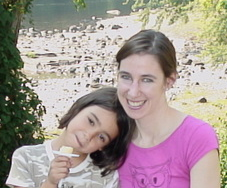 Heather O'Leary earned her BSc in Biomedical Engineering at Boston University,
Boston, Massachusetts.
Her early research experience at Brigham and Women's Hospital includes
development of an algorithm for bias field correction in magnetic resonance
(MR) images, a brain computer interface that utilizes functional MR images as
real-time feedback for subject mediation of cortical activation during task
performance, and support for an intra-operative real-time thermal mapping from
MR images during laser ablation in an open magnet.
In 2006 she joined Dr. du Plessis to assist in developing a data collection
device for neonatal intensive care unit studies and algorithms to characterize
the relationship between the collected signals.
Specifically, she has examined the dynamic relationship between fluctuations of
cerebral oxygenation, imaged with near-infrared spectroscopy (NIRS), and
arterial blood pressure using time and frequency domain analysis.
She is currently developing algorithms to model baroreceptor control of the
cardiovascular system.
Her primary research interests are signal processing and physiologic systems
modeling.
Heather O'Leary earned her BSc in Biomedical Engineering at Boston University,
Boston, Massachusetts.
Her early research experience at Brigham and Women's Hospital includes
development of an algorithm for bias field correction in magnetic resonance
(MR) images, a brain computer interface that utilizes functional MR images as
real-time feedback for subject mediation of cortical activation during task
performance, and support for an intra-operative real-time thermal mapping from
MR images during laser ablation in an open magnet.
In 2006 she joined Dr. du Plessis to assist in developing a data collection
device for neonatal intensive care unit studies and algorithms to characterize
the relationship between the collected signals.
Specifically, she has examined the dynamic relationship between fluctuations of
cerebral oxygenation, imaged with near-infrared spectroscopy (NIRS), and
arterial blood pressure using time and frequency domain analysis.
She is currently developing algorithms to model baroreceptor control of the
cardiovascular system.
Her primary research interests are signal processing and physiologic systems
modeling.
Manon Ranger
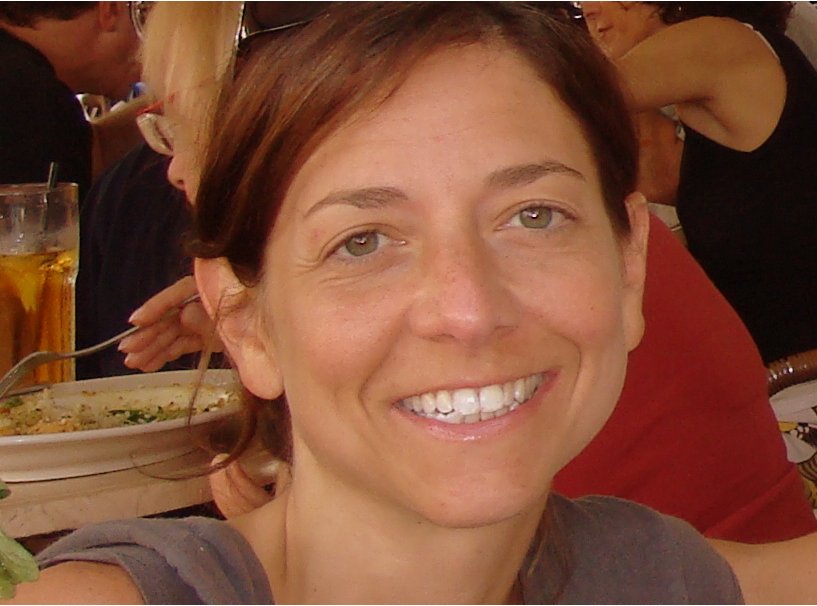 Manon Ranger is a PhD candidate at McGill University (Montreal, Canada).
She has completed both her BSc and MSc degrees in Nursing Science at the
University of Montreal.
Her expertise is in pain in children with a particular research interest in pain
measurement and higher order pain processing at the cortical level in
critically ill infants.
Currently, Manon is pursuing her doctoral work at the Children's Hospital
Boston under the supervision of Dr. du Plessis, where she is looking into
cerebral neurovascular coupling and electrical responses (using NIRS and aEEG)
during noxious stimulation in critically ill infants.
Manon Ranger is a PhD candidate at McGill University (Montreal, Canada).
She has completed both her BSc and MSc degrees in Nursing Science at the
University of Montreal.
Her expertise is in pain in children with a particular research interest in pain
measurement and higher order pain processing at the cortical level in
critically ill infants.
Currently, Manon is pursuing her doctoral work at the Children's Hospital
Boston under the supervision of Dr. du Plessis, where she is looking into
cerebral neurovascular coupling and electrical responses (using NIRS and aEEG)
during noxious stimulation in critically ill infants.
Daniel Coelho
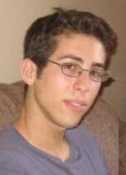 Daniel Coelho graduated from Boston University in May of 2008 with a BA degree
in Biology, specializing in Neuroscience.
He is currently with the Neurology Department at Boston's Children's Hospital,
where his work focuses on fetal and neonatal brain development and injury.
In August of 2009, Daniel will begin medical school at Boston University's
School of Medicine.
After completing medical school, he plans to pursue a career in pediatric
medicine.
Daniel Coelho graduated from Boston University in May of 2008 with a BA degree
in Biology, specializing in Neuroscience.
He is currently with the Neurology Department at Boston's Children's Hospital,
where his work focuses on fetal and neonatal brain development and injury.
In August of 2009, Daniel will begin medical school at Boston University's
School of Medicine.
After completing medical school, he plans to pursue a career in pediatric
medicine.
Mustafa Suleymanci
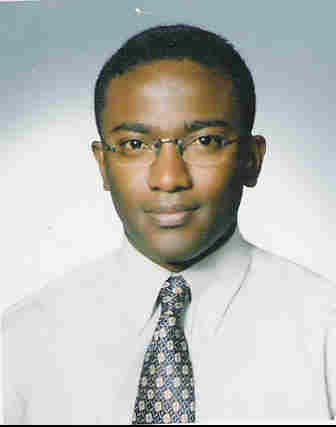 Mustafa Suleymanci received his MD degree from Hacettepe University School of
Medicine, Ankara, Turkey, where he also completed his internship and residency
in pediatrics in the university's Dogramaci Institute of Child Health.
Having committed his interest to the field of Neonatology, Dr. Suleymanci
spent 2005 observing neonatal care at Texas Children's Hospital's Department of
Newborn Medicine before pursuing his academic and research career in Boston.
At Boston's Children's Hospital, he initially joined Dr. du Plessis' group as a
research coordinator and was subsequently awarded a fellowship in
Fetal/Neonatal Neurology.
His research interests focus on the mechanisms of brain injury resulting from
hemodynamic disturbances in critically-ill premature and term infants and also
in newborn infants with congenital heart disease requiring cardiac surgery.
He is currently investigating the role played by circulating pro-inflammatory
cytokines in brain hemorrhage and the disruption of cerebral pressure
auto-regulation in the premature infant population.
Mustafa Suleymanci received his MD degree from Hacettepe University School of
Medicine, Ankara, Turkey, where he also completed his internship and residency
in pediatrics in the university's Dogramaci Institute of Child Health.
Having committed his interest to the field of Neonatology, Dr. Suleymanci
spent 2005 observing neonatal care at Texas Children's Hospital's Department of
Newborn Medicine before pursuing his academic and research career in Boston.
At Boston's Children's Hospital, he initially joined Dr. du Plessis' group as a
research coordinator and was subsequently awarded a fellowship in
Fetal/Neonatal Neurology.
His research interests focus on the mechanisms of brain injury resulting from
hemodynamic disturbances in critically-ill premature and term infants and also
in newborn infants with congenital heart disease requiring cardiac surgery.
He is currently investigating the role played by circulating pro-inflammatory
cytokines in brain hemorrhage and the disruption of cerebral pressure
auto-regulation in the premature infant population.
Adré du Plessis
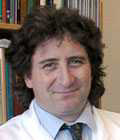 Adré du Plessis holds the dual directorship of the Critical Care Neurology
Service and the Neonatal Neurology Program at Children's Hospital Boston. Dr.
du Plessis received his MBChB degree from the University of Cape Town, South
Africa, and the MPH in Clinical Effectiveness from the Harvard School of Public
Health, Boston.
Before assuming his current positions, he completed internship and residencies
in pediatrics at Groote Shuur Hospital, Cape Town, and The Milton S. Hershey
Medical Center at The Pennsylvania State Medical College, Hershey, PA.
He continued his training by completing a residency program in Pediatric
Neurology and a fellowship in Neonatal Neurology.
He has been on the faculty at Boston's Children's Hospital since 1997.
His research interests focus on the development, detection, and possible
prevention of brain injury in very low birthweight and extremely low
birthweight infants.
Adré du Plessis holds the dual directorship of the Critical Care Neurology
Service and the Neonatal Neurology Program at Children's Hospital Boston. Dr.
du Plessis received his MBChB degree from the University of Cape Town, South
Africa, and the MPH in Clinical Effectiveness from the Harvard School of Public
Health, Boston.
Before assuming his current positions, he completed internship and residencies
in pediatrics at Groote Shuur Hospital, Cape Town, and The Milton S. Hershey
Medical Center at The Pennsylvania State Medical College, Hershey, PA.
He continued his training by completing a residency program in Pediatric
Neurology and a fellowship in Neonatal Neurology.
He has been on the faculty at Boston's Children's Hospital since 1997.
His research interests focus on the development, detection, and possible
prevention of brain injury in very low birthweight and extremely low
birthweight infants.
Massachusetts Institute of Technology
Faisal Kashif
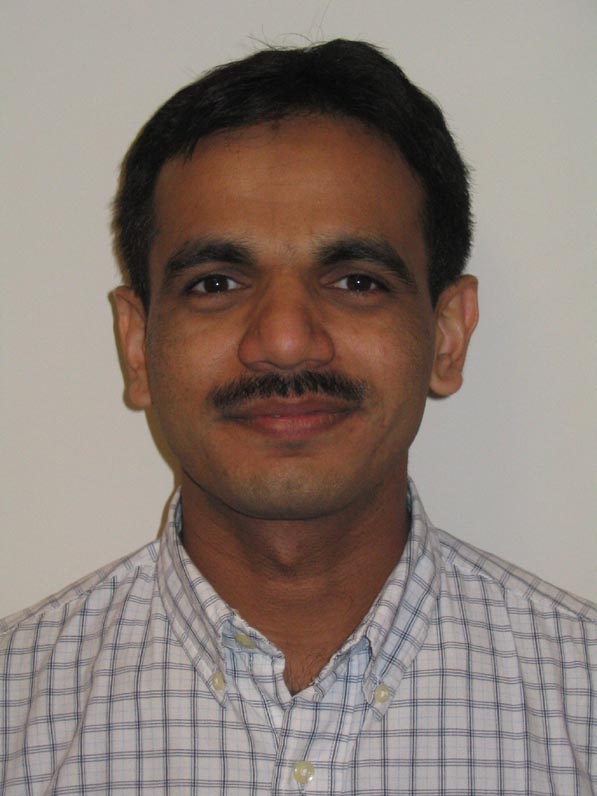 Faisal Kashif received his BSc in Electronic Engineering from the Ghulam Ishaq
Khan Institute, Topi, Pakistan, and his SM from the Massachusetts Institute of
Technology, Cambridge, MA, where he is currently a PhD candidate in Electrical
Engineering and Computer Science.
Prior to commencing his graduate eduation at MIT, Faisal gained considerable
research experience in industry in Pakistan and the United States.
Faisal's research interest include system modeling and model analysis, signal
and information theory, and algorithm development.
For his doctoral research, Faisal is currently working on modeling the
cardiovascular and cerebrovascular systems and on estimating physiological
variables that are important for disease diagnosis and patient monitoring.
For his doctoral work in this area, Faisal has received an MIT/CIMIT Medical
Engineering Fellowship for the years 2008 and 2009.
Faisal Kashif received his BSc in Electronic Engineering from the Ghulam Ishaq
Khan Institute, Topi, Pakistan, and his SM from the Massachusetts Institute of
Technology, Cambridge, MA, where he is currently a PhD candidate in Electrical
Engineering and Computer Science.
Prior to commencing his graduate eduation at MIT, Faisal gained considerable
research experience in industry in Pakistan and the United States.
Faisal's research interest include system modeling and model analysis, signal
and information theory, and algorithm development.
For his doctoral research, Faisal is currently working on modeling the
cardiovascular and cerebrovascular systems and on estimating physiological
variables that are important for disease diagnosis and patient monitoring.
For his doctoral work in this area, Faisal has received an MIT/CIMIT Medical
Engineering Fellowship for the years 2008 and 2009.
Thomas Heldt
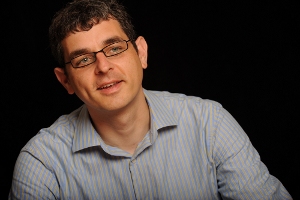 Thomas Heldt began his studies of physics and medicine at Johannes
Gutenberg-Universität, Mainz, Germany.
He received the MS and MPhil degrees in Physics from Yale University and the PhD
degree in Medical Physics from the Harvard University-MIT Division of Health
Sciences and Technology.
He is currently a postdoctoral associate with the Laboratory for Electromagnetic
and Electronic Systems at MIT and a Research Fellow in Fetal/Neonatal Neurology
at Boston's Children's Hospital.
His research interests include mathematical modeling of physiological systems,
model reduction, and model identification, particularly when applied to the
cardiovascular and cerebrovascular systems.
Currently, Dr. Heldt applies these methodologies to improve the care of
patients in intensive care, peri-operative care, and home health care
environments.
Thomas Heldt began his studies of physics and medicine at Johannes
Gutenberg-Universität, Mainz, Germany.
He received the MS and MPhil degrees in Physics from Yale University and the PhD
degree in Medical Physics from the Harvard University-MIT Division of Health
Sciences and Technology.
He is currently a postdoctoral associate with the Laboratory for Electromagnetic
and Electronic Systems at MIT and a Research Fellow in Fetal/Neonatal Neurology
at Boston's Children's Hospital.
His research interests include mathematical modeling of physiological systems,
model reduction, and model identification, particularly when applied to the
cardiovascular and cerebrovascular systems.
Currently, Dr. Heldt applies these methodologies to improve the care of
patients in intensive care, peri-operative care, and home health care
environments.
George Verghese
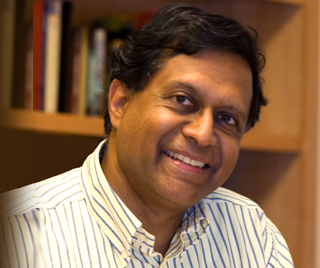 George Verghese received his BTech from the Indian Institute of Technology,
Madras in 1974, his MS from the State University of New York, Stony Brook in
1975, and his PhD from Stanford University in 1979, all in Electrical
Engineering.
Since 1979, he has been with the Massachusetts Institute of Technology, where
he is Professor of Electrical Engineering in the Department of Electrical
Engineering and Computer Science.
He is also a member of MIT's Laboratory for Electromagnetic and Electronic
Systems.
His research interests and publications are in the areas of dynamic systems,
modeling, estimation, signal processing, and control. Dr. Verghese has served
as Associate Editor for Automatica, the IEEE Transactions on Automatic Control,
and the IEEE Transactions on Control Systems Technology.
He has made significant contributions to the fields of control theory and
dynamic modeling, for which he has been named IEEE Fellow in 1998.
In recent years, his research focus has shifted from applications in power
systems and power electronics to applications in biomedicine, such as patient
monitoring, and stochastic methods for biochemical and other networks.
George Verghese received his BTech from the Indian Institute of Technology,
Madras in 1974, his MS from the State University of New York, Stony Brook in
1975, and his PhD from Stanford University in 1979, all in Electrical
Engineering.
Since 1979, he has been with the Massachusetts Institute of Technology, where
he is Professor of Electrical Engineering in the Department of Electrical
Engineering and Computer Science.
He is also a member of MIT's Laboratory for Electromagnetic and Electronic
Systems.
His research interests and publications are in the areas of dynamic systems,
modeling, estimation, signal processing, and control. Dr. Verghese has served
as Associate Editor for Automatica, the IEEE Transactions on Automatic Control,
and the IEEE Transactions on Control Systems Technology.
He has made significant contributions to the fields of control theory and
dynamic modeling, for which he has been named IEEE Fellow in 1998.
In recent years, his research focus has shifted from applications in power
systems and power electronics to applications in biomedicine, such as patient
monitoring, and stochastic methods for biochemical and other networks.
|


 Carmen Fons received her MD degree from Rovira and Virgili University School of Medicine, Tarragona, Spain. She completed her residency in Pediatrics at Lozano-Blesa Hospital, Zaragoza University. In September 2003 she obtained the proficiency as an investigator from Zaragoza University. After short clinical training in Pediatric Neurology at St. Christopher’s Hospital, Philadelphia, she developed great interest in neurosciences. She continued her training and completed a fellowship in Pediatric Neurology at Sant Joan de Deu Hospital for Children, Barcelona University where she has been on the faculty since 2007. She got her PhD in neuroscience from Barcelona University in February 2010. She has participated in several research projects funded by the Spanish National Institute of Health. Currently, she is working with Fetal/Neonatal Neurology Research Group, and her research is focused on the cerebral and systemic hemodynamic changes related to subclinical seizures in preterm infants.
Carmen Fons received her MD degree from Rovira and Virgili University School of Medicine, Tarragona, Spain. She completed her residency in Pediatrics at Lozano-Blesa Hospital, Zaragoza University. In September 2003 she obtained the proficiency as an investigator from Zaragoza University. After short clinical training in Pediatric Neurology at St. Christopher’s Hospital, Philadelphia, she developed great interest in neurosciences. She continued her training and completed a fellowship in Pediatric Neurology at Sant Joan de Deu Hospital for Children, Barcelona University where she has been on the faculty since 2007. She got her PhD in neuroscience from Barcelona University in February 2010. She has participated in several research projects funded by the Spanish National Institute of Health. Currently, she is working with Fetal/Neonatal Neurology Research Group, and her research is focused on the cerebral and systemic hemodynamic changes related to subclinical seizures in preterm infants.
 Heather O'Leary earned her BSc in Biomedical Engineering at Boston University,
Boston, Massachusetts.
Her early research experience at Brigham and Women's Hospital includes
development of an algorithm for bias field correction in magnetic resonance
(MR) images, a brain computer interface that utilizes functional MR images as
real-time feedback for subject mediation of cortical activation during task
performance, and support for an intra-operative real-time thermal mapping from
MR images during laser ablation in an open magnet.
In 2006 she joined Dr. du Plessis to assist in developing a data collection
device for neonatal intensive care unit studies and algorithms to characterize
the relationship between the collected signals.
Specifically, she has examined the dynamic relationship between fluctuations of
cerebral oxygenation, imaged with near-infrared spectroscopy (NIRS), and
arterial blood pressure using time and frequency domain analysis.
She is currently developing algorithms to model baroreceptor control of the
cardiovascular system.
Her primary research interests are signal processing and physiologic systems
modeling.
Heather O'Leary earned her BSc in Biomedical Engineering at Boston University,
Boston, Massachusetts.
Her early research experience at Brigham and Women's Hospital includes
development of an algorithm for bias field correction in magnetic resonance
(MR) images, a brain computer interface that utilizes functional MR images as
real-time feedback for subject mediation of cortical activation during task
performance, and support for an intra-operative real-time thermal mapping from
MR images during laser ablation in an open magnet.
In 2006 she joined Dr. du Plessis to assist in developing a data collection
device for neonatal intensive care unit studies and algorithms to characterize
the relationship between the collected signals.
Specifically, she has examined the dynamic relationship between fluctuations of
cerebral oxygenation, imaged with near-infrared spectroscopy (NIRS), and
arterial blood pressure using time and frequency domain analysis.
She is currently developing algorithms to model baroreceptor control of the
cardiovascular system.
Her primary research interests are signal processing and physiologic systems
modeling.
 Manon Ranger is a PhD candidate at McGill University (Montreal, Canada).
She has completed both her BSc and MSc degrees in Nursing Science at the
University of Montreal.
Her expertise is in pain in children with a particular research interest in pain
measurement and higher order pain processing at the cortical level in
critically ill infants.
Currently, Manon is pursuing her doctoral work at the Children's Hospital
Boston under the supervision of Dr. du Plessis, where she is looking into
cerebral neurovascular coupling and electrical responses (using NIRS and aEEG)
during noxious stimulation in critically ill infants.
Manon Ranger is a PhD candidate at McGill University (Montreal, Canada).
She has completed both her BSc and MSc degrees in Nursing Science at the
University of Montreal.
Her expertise is in pain in children with a particular research interest in pain
measurement and higher order pain processing at the cortical level in
critically ill infants.
Currently, Manon is pursuing her doctoral work at the Children's Hospital
Boston under the supervision of Dr. du Plessis, where she is looking into
cerebral neurovascular coupling and electrical responses (using NIRS and aEEG)
during noxious stimulation in critically ill infants.
 Daniel Coelho graduated from Boston University in May of 2008 with a BA degree
in Biology, specializing in Neuroscience.
He is currently with the Neurology Department at Boston's Children's Hospital,
where his work focuses on fetal and neonatal brain development and injury.
In August of 2009, Daniel will begin medical school at Boston University's
School of Medicine.
After completing medical school, he plans to pursue a career in pediatric
medicine.
Daniel Coelho graduated from Boston University in May of 2008 with a BA degree
in Biology, specializing in Neuroscience.
He is currently with the Neurology Department at Boston's Children's Hospital,
where his work focuses on fetal and neonatal brain development and injury.
In August of 2009, Daniel will begin medical school at Boston University's
School of Medicine.
After completing medical school, he plans to pursue a career in pediatric
medicine.  Mustafa Suleymanci received his MD degree from Hacettepe University School of
Medicine, Ankara, Turkey, where he also completed his internship and residency
in pediatrics in the university's Dogramaci Institute of Child Health.
Having committed his interest to the field of Neonatology, Dr. Suleymanci
spent 2005 observing neonatal care at Texas Children's Hospital's Department of
Newborn Medicine before pursuing his academic and research career in Boston.
At Boston's Children's Hospital, he initially joined Dr. du Plessis' group as a
research coordinator and was subsequently awarded a fellowship in
Fetal/Neonatal Neurology.
His research interests focus on the mechanisms of brain injury resulting from
hemodynamic disturbances in critically-ill premature and term infants and also
in newborn infants with congenital heart disease requiring cardiac surgery.
He is currently investigating the role played by circulating pro-inflammatory
cytokines in brain hemorrhage and the disruption of cerebral pressure
auto-regulation in the premature infant population.
Mustafa Suleymanci received his MD degree from Hacettepe University School of
Medicine, Ankara, Turkey, where he also completed his internship and residency
in pediatrics in the university's Dogramaci Institute of Child Health.
Having committed his interest to the field of Neonatology, Dr. Suleymanci
spent 2005 observing neonatal care at Texas Children's Hospital's Department of
Newborn Medicine before pursuing his academic and research career in Boston.
At Boston's Children's Hospital, he initially joined Dr. du Plessis' group as a
research coordinator and was subsequently awarded a fellowship in
Fetal/Neonatal Neurology.
His research interests focus on the mechanisms of brain injury resulting from
hemodynamic disturbances in critically-ill premature and term infants and also
in newborn infants with congenital heart disease requiring cardiac surgery.
He is currently investigating the role played by circulating pro-inflammatory
cytokines in brain hemorrhage and the disruption of cerebral pressure
auto-regulation in the premature infant population.
 Adré du Plessis holds the dual directorship of the Critical Care Neurology
Service and the Neonatal Neurology Program at Children's Hospital Boston. Dr.
du Plessis received his MBChB degree from the University of Cape Town, South
Africa, and the MPH in Clinical Effectiveness from the Harvard School of Public
Health, Boston.
Before assuming his current positions, he completed internship and residencies
in pediatrics at Groote Shuur Hospital, Cape Town, and The Milton S. Hershey
Medical Center at The Pennsylvania State Medical College, Hershey, PA.
He continued his training by completing a residency program in Pediatric
Neurology and a fellowship in Neonatal Neurology.
He has been on the faculty at Boston's Children's Hospital since 1997.
His research interests focus on the development, detection, and possible
prevention of brain injury in very low birthweight and extremely low
birthweight infants.
Adré du Plessis holds the dual directorship of the Critical Care Neurology
Service and the Neonatal Neurology Program at Children's Hospital Boston. Dr.
du Plessis received his MBChB degree from the University of Cape Town, South
Africa, and the MPH in Clinical Effectiveness from the Harvard School of Public
Health, Boston.
Before assuming his current positions, he completed internship and residencies
in pediatrics at Groote Shuur Hospital, Cape Town, and The Milton S. Hershey
Medical Center at The Pennsylvania State Medical College, Hershey, PA.
He continued his training by completing a residency program in Pediatric
Neurology and a fellowship in Neonatal Neurology.
He has been on the faculty at Boston's Children's Hospital since 1997.
His research interests focus on the development, detection, and possible
prevention of brain injury in very low birthweight and extremely low
birthweight infants.
 Faisal Kashif received his BSc in Electronic Engineering from the Ghulam Ishaq
Khan Institute, Topi, Pakistan, and his SM from the Massachusetts Institute of
Technology, Cambridge, MA, where he is currently a PhD candidate in Electrical
Engineering and Computer Science.
Prior to commencing his graduate eduation at MIT, Faisal gained considerable
research experience in industry in Pakistan and the United States.
Faisal's research interest include system modeling and model analysis, signal
and information theory, and algorithm development.
For his doctoral research, Faisal is currently working on modeling the
cardiovascular and cerebrovascular systems and on estimating physiological
variables that are important for disease diagnosis and patient monitoring.
For his doctoral work in this area, Faisal has received an MIT/CIMIT Medical
Engineering Fellowship for the years 2008 and 2009.
Faisal Kashif received his BSc in Electronic Engineering from the Ghulam Ishaq
Khan Institute, Topi, Pakistan, and his SM from the Massachusetts Institute of
Technology, Cambridge, MA, where he is currently a PhD candidate in Electrical
Engineering and Computer Science.
Prior to commencing his graduate eduation at MIT, Faisal gained considerable
research experience in industry in Pakistan and the United States.
Faisal's research interest include system modeling and model analysis, signal
and information theory, and algorithm development.
For his doctoral research, Faisal is currently working on modeling the
cardiovascular and cerebrovascular systems and on estimating physiological
variables that are important for disease diagnosis and patient monitoring.
For his doctoral work in this area, Faisal has received an MIT/CIMIT Medical
Engineering Fellowship for the years 2008 and 2009.
 Thomas Heldt began his studies of physics and medicine at Johannes
Gutenberg-Universität, Mainz, Germany.
He received the MS and MPhil degrees in Physics from Yale University and the PhD
degree in Medical Physics from the Harvard University-MIT Division of Health
Sciences and Technology.
He is currently a postdoctoral associate with the Laboratory for Electromagnetic
and Electronic Systems at MIT and a Research Fellow in Fetal/Neonatal Neurology
at Boston's Children's Hospital.
His research interests include mathematical modeling of physiological systems,
model reduction, and model identification, particularly when applied to the
cardiovascular and cerebrovascular systems.
Currently, Dr. Heldt applies these methodologies to improve the care of
patients in intensive care, peri-operative care, and home health care
environments.
Thomas Heldt began his studies of physics and medicine at Johannes
Gutenberg-Universität, Mainz, Germany.
He received the MS and MPhil degrees in Physics from Yale University and the PhD
degree in Medical Physics from the Harvard University-MIT Division of Health
Sciences and Technology.
He is currently a postdoctoral associate with the Laboratory for Electromagnetic
and Electronic Systems at MIT and a Research Fellow in Fetal/Neonatal Neurology
at Boston's Children's Hospital.
His research interests include mathematical modeling of physiological systems,
model reduction, and model identification, particularly when applied to the
cardiovascular and cerebrovascular systems.
Currently, Dr. Heldt applies these methodologies to improve the care of
patients in intensive care, peri-operative care, and home health care
environments.
 George Verghese received his BTech from the Indian Institute of Technology,
Madras in 1974, his MS from the State University of New York, Stony Brook in
1975, and his PhD from Stanford University in 1979, all in Electrical
Engineering.
Since 1979, he has been with the Massachusetts Institute of Technology, where
he is Professor of Electrical Engineering in the Department of Electrical
Engineering and Computer Science.
He is also a member of MIT's Laboratory for Electromagnetic and Electronic
Systems.
His research interests and publications are in the areas of dynamic systems,
modeling, estimation, signal processing, and control. Dr. Verghese has served
as Associate Editor for Automatica, the IEEE Transactions on Automatic Control,
and the IEEE Transactions on Control Systems Technology.
He has made significant contributions to the fields of control theory and
dynamic modeling, for which he has been named IEEE Fellow in 1998.
In recent years, his research focus has shifted from applications in power
systems and power electronics to applications in biomedicine, such as patient
monitoring, and stochastic methods for biochemical and other networks.
George Verghese received his BTech from the Indian Institute of Technology,
Madras in 1974, his MS from the State University of New York, Stony Brook in
1975, and his PhD from Stanford University in 1979, all in Electrical
Engineering.
Since 1979, he has been with the Massachusetts Institute of Technology, where
he is Professor of Electrical Engineering in the Department of Electrical
Engineering and Computer Science.
He is also a member of MIT's Laboratory for Electromagnetic and Electronic
Systems.
His research interests and publications are in the areas of dynamic systems,
modeling, estimation, signal processing, and control. Dr. Verghese has served
as Associate Editor for Automatica, the IEEE Transactions on Automatic Control,
and the IEEE Transactions on Control Systems Technology.
He has made significant contributions to the fields of control theory and
dynamic modeling, for which he has been named IEEE Fellow in 1998.
In recent years, his research focus has shifted from applications in power
systems and power electronics to applications in biomedicine, such as patient
monitoring, and stochastic methods for biochemical and other networks.